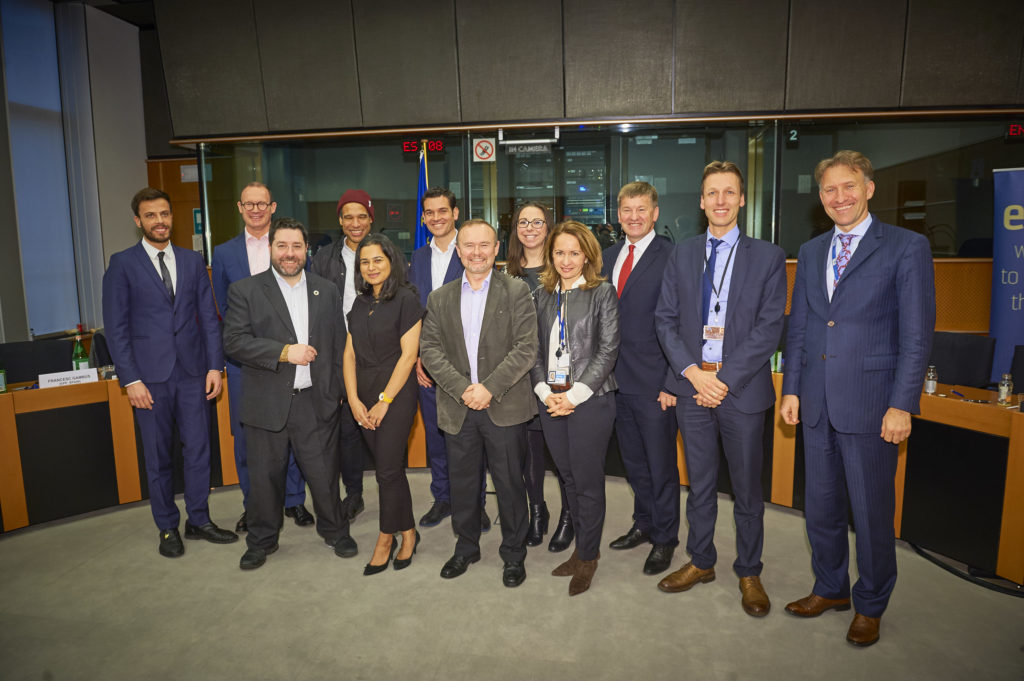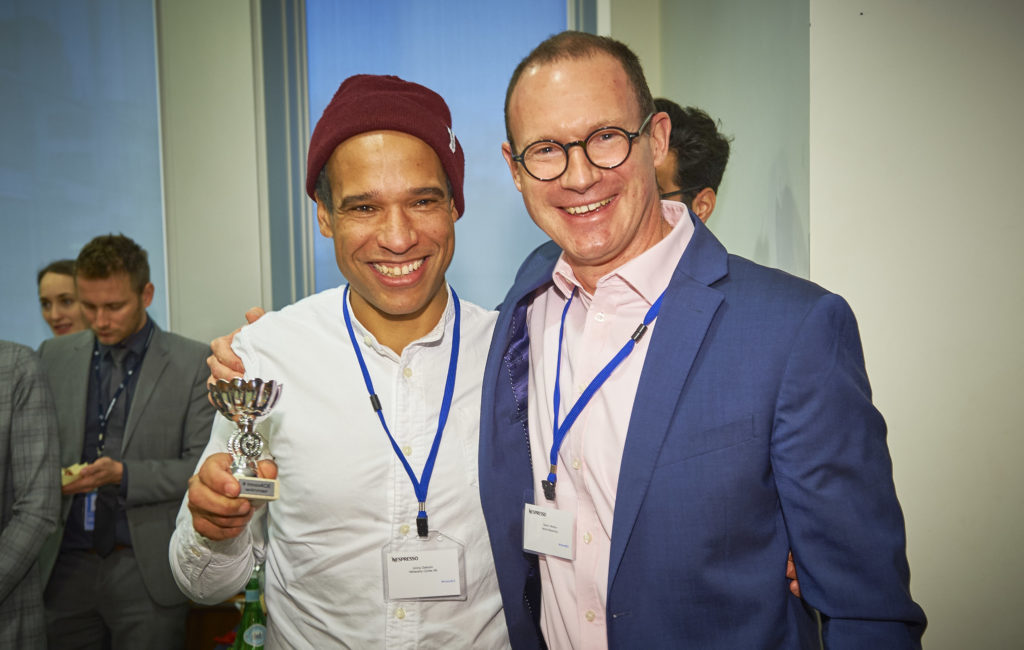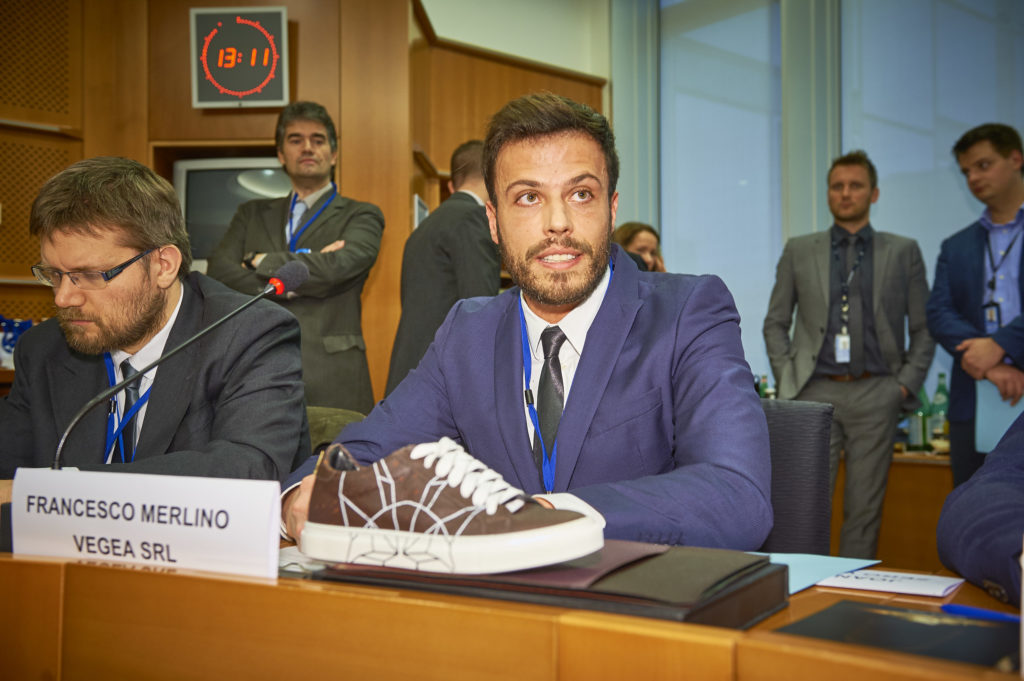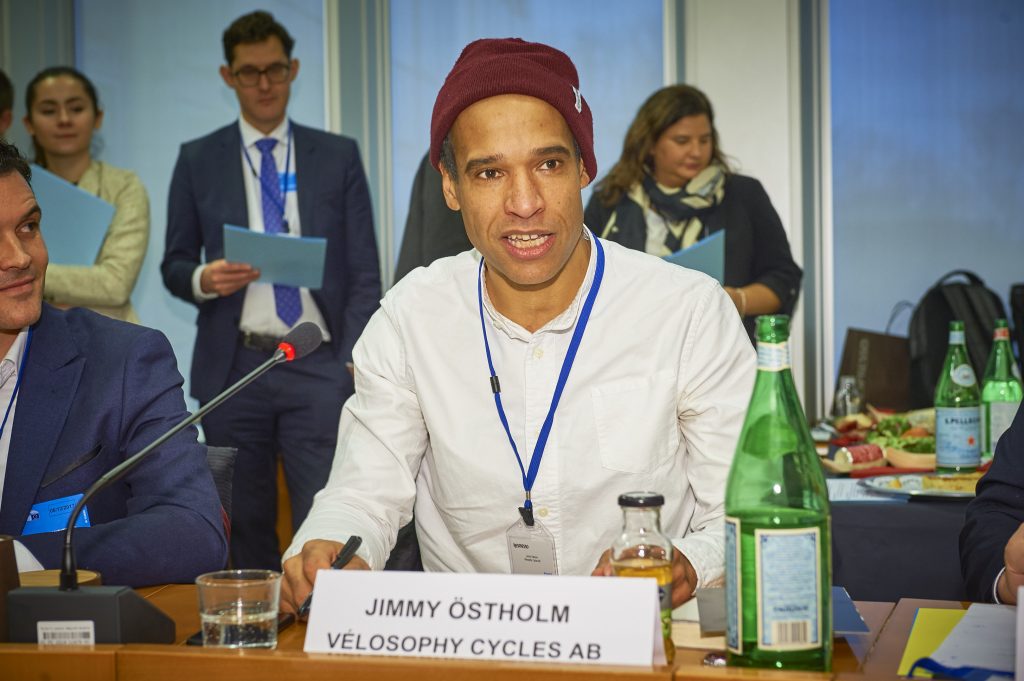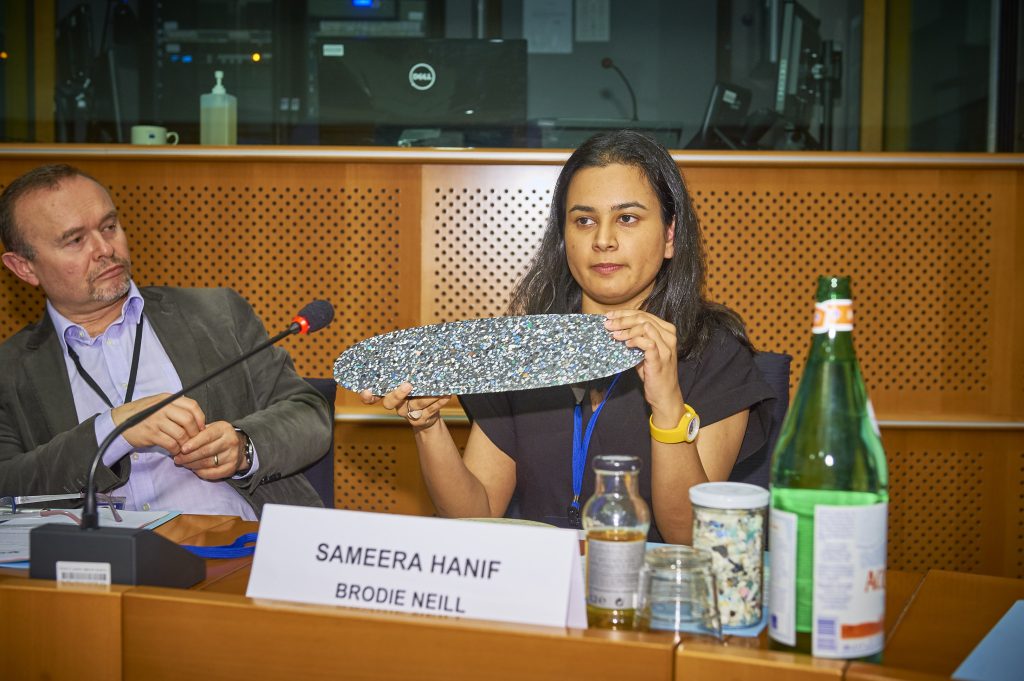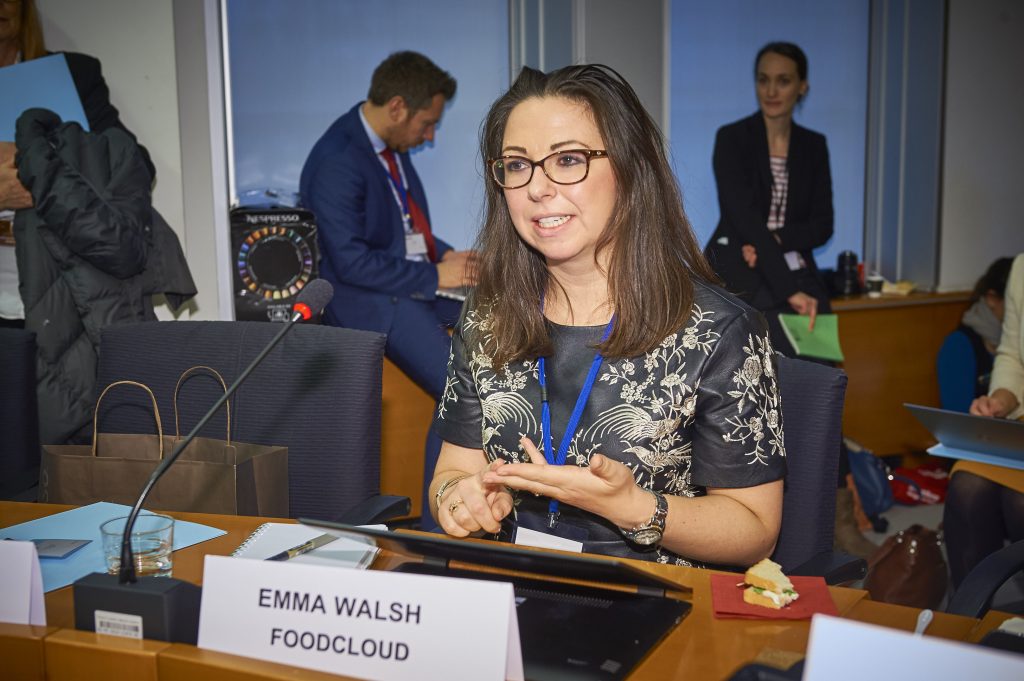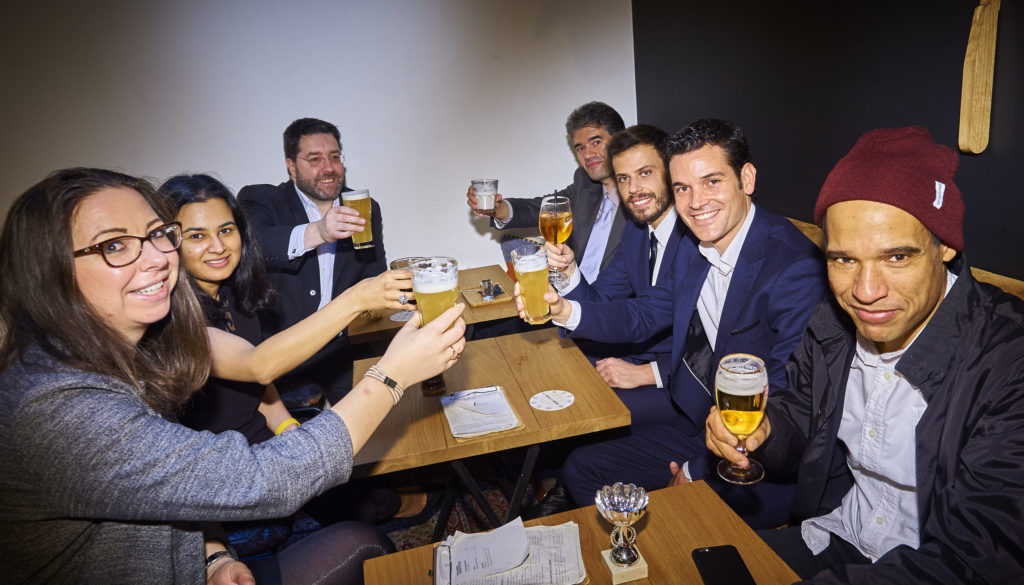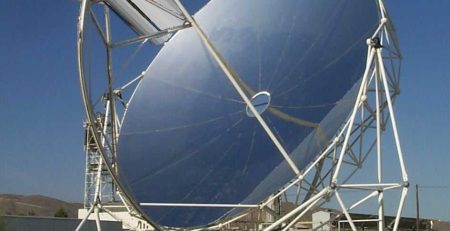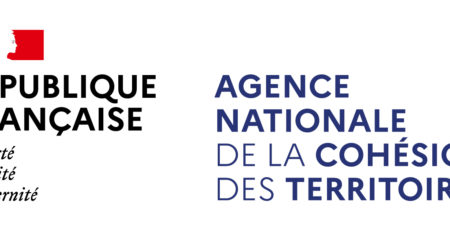Closing the loop: Innovation for a Circular Economy
On Wednesday 6th December, 2017, Paul Bristow represented Pangloss Labs along with 5 other startups with innovations in the circular economy in Brussels . We were chosen from across all of the EU to participate in a high-level policy discussion at the European Parliament, hosted by Nespresso and the EU40.
MEPs Franc Bogovic (EPP, Slovenia) and Davor Skrlec (Greens/EFA, Croatia) hosted the roundtable debate preceded by six start-ups that pitched their innovations and spice up the discussion.
The agenda included:
12:30 – 12:50 Networking Lunch
12:50 – 13:15 Dragon’s Den – start-ups’ pitch presenting their innovation including a vote
13:15 – 14:30 High-level discussion
Moderated by Peter Woodward, the high-level discussion aimed at engaging stakeholders in a consumer-focused debate – how to raise awareness, foster public acceptance among end-users and accelerate transition towards the circular economy.
MEP Seb Dance, VP Mairead McGuinness, MEP Giovanni La Via, MEP Jakop Dalunde and MEP Inmaculada Rodriguez-Piñero introduced circular economy startups from their own country and were joined by MEP Gesine Meissner who spoke at the high-level policy debate, as well as Kęstutis Sadauskas, Director for the Green Economy at DG Environment.
The six startups, selected by Nestlé Nespresso from across Europe, were:
- Pangloss Labs (France) – 21st century local manufacturing. See our complete pitch below
- Decafé (Spain) – At Decafé they turn used coffee grounds into premium interior design products – namely lamps, bowls and tiles. The products are made through an artisanal and ecological process, focusing on all the details and conserving the value of its fundamental material.
- FoodCloud (Ireland) – FoodCloud uses technology to connect businesses with too much food to local charities that are in need of food. They started with one store in Dublin but now they have 3,200 stores donating surplus across the UK and Ireland, working with leading retailers such as Tesco, Aldi, Lidl and Waitrose.
- Vegea (Italy) – Vegea is an Italian startup producing innovative biomaterial created from wine production leftovers, to be used for the fashion, furniture and automative applications, as a sustainable alternative to animal derived and totally synthetic materials.
- Velosophy (Sweden) – Vélosophy brings great city bicycles, to pedalling citizens around the globe. At they same time they provide young schoolgirls in developing countries with bicycles – supporting UNICEF and World Bicycle Relief. For every Vélosophy sold, they donate another bicycle to a 10-14 year old girl – bringing her hope of a better future.
- Brodie Neill (UK) – Award winning high-end interior design made out of ocean plastic.
You can watch the entire session on Youtube.
The Pangloss Pitch
Pangloss Labs is a collaborative shared space for local innovation.
We built an interesting place, to attract interesting people, to do interesting things. Do-tank more than think-tank. With multiple innovation labs, built around an ecological Fablab we are trying to bring a twenty-first century version of local manufacturing back to Europe. But our “product” is local businesses.
Our approach mixes open innovation, digital fabrication, local sourcing and circular design, with lean startup – a practical “can you get customers?” methodology.
Our motivation comes from two key ideas:
1. We won’t save the planet in our spare time.
2. If the only jobs available are ecologically destructive, that’s what people will do.
And we were excited by the “internet of things”. We already have the internet, so we needed somewhere to make the things.
Working directly with new & existing businesses – and their customers – using design thinking, we have identified “waste” material flows which can be used for new products. We have put processes in place for direct recycling of 3D prints, plastic, wood, plus repair and modular design of electronics & robotics.
An example:
this bracelet is made of 3D printed wood, printed in our fablab, with the filament being made from the sawdust of a local ski maker. We also designed and built a modular laser engraver for his workshop.
From day one we knew that the interactions between different disciplines were key to creating innovation, but none of the traditional startup support network seemed to understand this. FOCUS they’d say. No-one would fund us, so we bootstrapped the whole thing ourselves.
Being on the border with Switzerland, I can tell you that EU customs regulations are light years away from being ready for local small-scale production. We can build a custom product for less than the cost of the paperwork.
So far, we’ve helped more than a hundred local entrepreneurs. To scale up across Europe, replicate this.
And let’s make it so easy for businesses to adopt the circular economy that it becomes the default.



